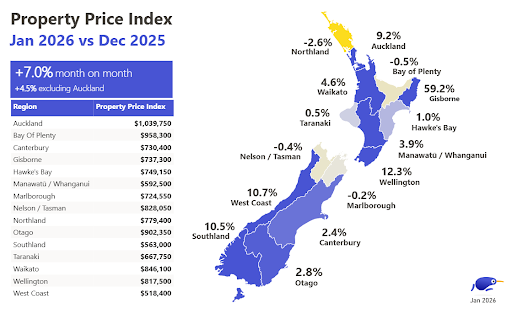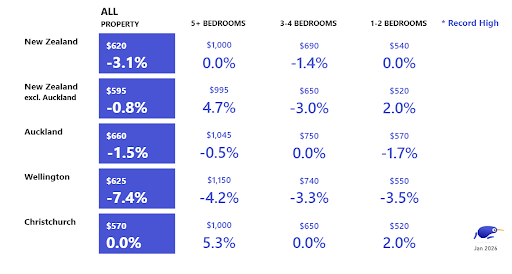News Next article
Wellington renters pocketing solid savings in 2026
Rental Price Index - January 2026
By Casey Wylde 27 February 2026Pōneke renters pocket solid savings
Rental Price Index January 2025 vs January 2026
Rental summary by house size, January 2026 (year-on-year change)
The rising cost to renters in the lower South Island
Supply and demand
| Region | Rental Price Index | ||
|---|---|---|---|
| Auckland | Auckland | $660 | $660 |
| Bay of Plenty | Bay of Plenty | $650 | $650 |
| Canterbury | Canterbury | $575 | $575 |
| Gisborne | Gisborne | NA | NA |
| Hawke's Bay | Hawke's Bay | $620 | $620 |
| Manawatu/Whanganui | Manawatu/Whanganui | $550 | $550 |
| Marlborough | Marlborough | $565 | $565 |
| Nelson/Tasman | Nelson/Tasman | $590 | $590 |
| Northland | Northland | $600 | $600 |
| Otago | Otago | $620 | $620 |
| Southland | Southland | $480 | $480 |
| Taranaki | Taranaki | $590 | $590 |
| Waikato | Waikato | $570 | $570 |
| Wellington | Wellington | $625 | $625 |
| West Coast | West Coast | NA | NA |
Most properties, more choice
Explore endless possibilities on NZ's favourite property app.
Download on iOS Download on Android Author




